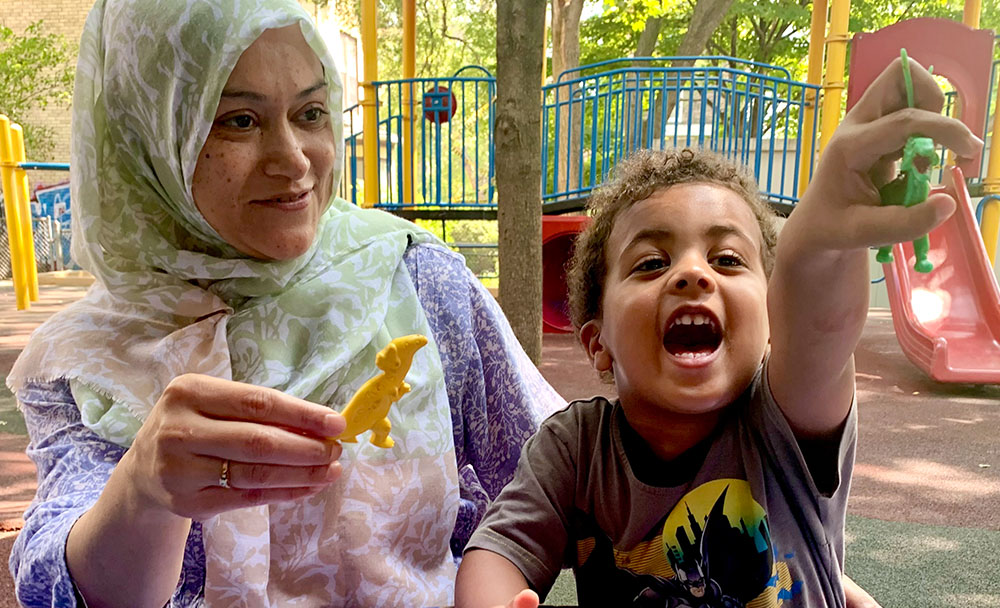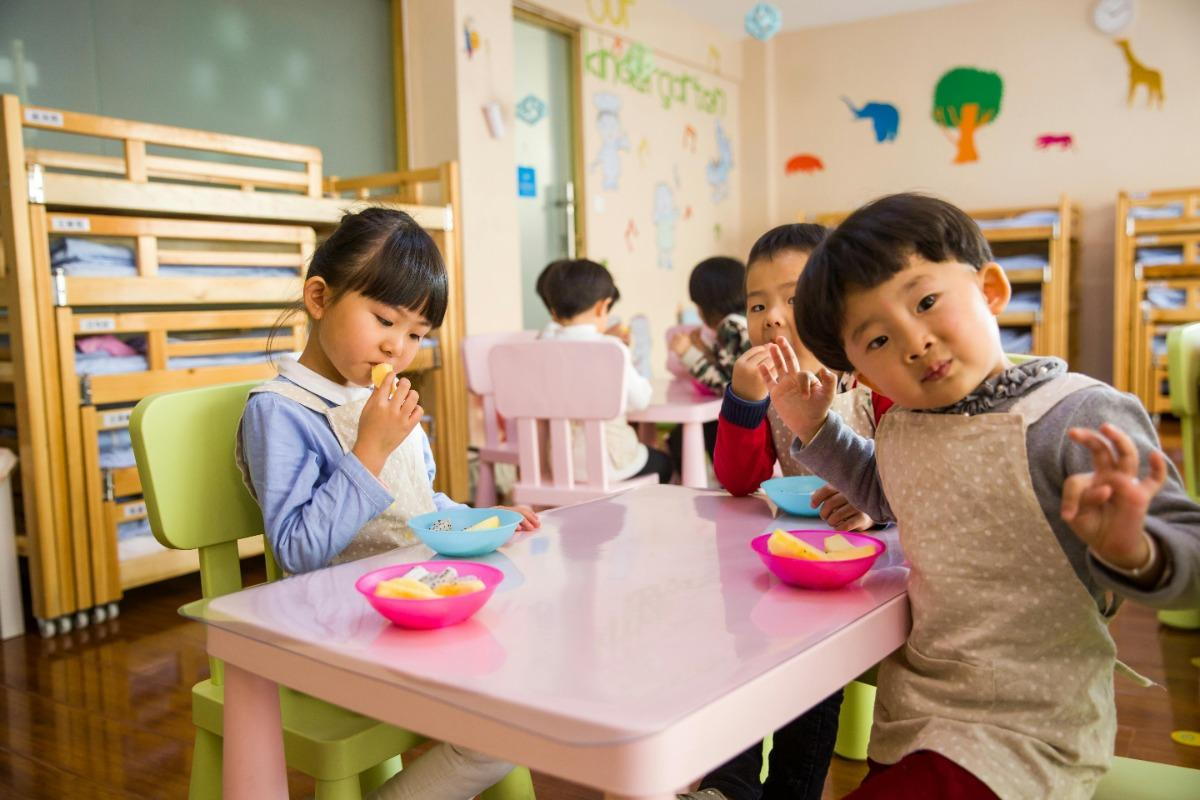Reputable Infant Daycare Near Me: Guaranteeing Your Baby's Comfort and Safety
Reputable Infant Daycare Near Me: Guaranteeing Your Baby's Comfort and Safety
Blog Article
Recognizing the Relevance of Day Care for Your Young child's Social Growth and Understanding Knowledge With Engaging Tasks
The significance of childcare in shaping a young child's social advancement and understanding can not be overemphasized, as it provides an organized environment filled up with interesting activities that are essential for early growth. As we check out the complex benefits of day care, one should think about just how these fundamental experiences influence a kid's future social interactions and general advancement.

Advantages of Social Interaction
Social communication plays a crucial function in the developmental trajectory of toddlers, functioning as a structure for crucial social abilities. Engaging with peers enables toddlers to practice interaction, learn to express their feelings, and establish empathy. Through shared play and teamwork, they begin to recognize social standards, such as taking turns and sharing, which are important elements of effective interpersonal partnerships.
Additionally, social communications add to cognitive advancement. As young children communicate with their peers, they enhance their language skills, broaden their vocabulary, and improve their ability to verbalize feelings and ideas. This exchange of ideas promotes essential thinking, as kids find out to negotiate, resolve troubles, and navigate disputes.
In addition, social interaction promotes psychological guideline. Exposure to numerous social scenarios aids kids identify and handle their emotions, eventually bring about greater resilience and flexibility. The ability to develop friendships and add-ons additionally enhances their feeling of belonging and self-worth, which are crucial for overall wellness.
Value of Engaging Tasks
Engaging activities are vital for cultivating a stimulating setting that boosts young children' social advancement. These tasks not just astound kids's focus however also advertise energetic engagement, allowing them to explore their environments artistically. Via play-based learning, young children develop important skills such as analytical, participation, and empathy, all of which are essential for constructing healthy and balanced partnerships with peers.
Joining engaging activities, such as team video games, art projects, and interactive storytelling, encourages kids to reveal their ideas and feelings. This expression is essential for emotional knowledge and aids them comprehend the viewpoints of others. When young children engage in these activities together, they learn to work out functions, share sources, and collaborate, which are basic aspects of social communication.
Furthermore, a well-structured atmosphere that includes stimulating and varied tasks aids in keeping toddlers encouraged and focused. This inspiration fosters a love for discovering and exploration, laying the structure for future academic experiences. Inevitably, involving activities in childcare setups are critical fit social skills, preparing toddlers for effective interactions past the class, and nurturing their total advancement throughout these developmental years.
Developing Interaction Skills
Reliable interaction abilities are important for young children as they browse their early social interactions. In a childcare setup, youngsters are revealed to diverse social scenarios that motivate non-verbal and verbal communication. Talking with caretakers and peers fosters language advancement, allowing kids to share their feelings, thoughts, and demands better.

Moreover, daycare settings provide opportunities for toddlers to mimic and observe communication styles of their grownups and peers. This empirical understanding is crucial as youngsters detect social cues, tone, and body language, which are necessary components of efficient interaction.
Cultivating Independence and Confidence
As young children improve their interaction skills, they all at once start to explore their self-reliance and build confidence in social setups (daycare for infants near me). Daycare offers an organized environment where children can participate in various activities that urge freedom. From choosing their very own tasks to participating in group tasks, these experiences empower young children to choose and express themselves
In a day care setup, children are usually presented with opportunities to solve problems independently, whether it's identifying just how to share toys or solving disputes with peers. This cultivates essential thinking and advertises self-sufficiency. Additionally, caregivers support this growth by giving positive support and assistance, assisting kids to navigate social interactions with confidence.

Group activities, such as cooperative video games or joint art projects, promote synergy and teach young children the value of interacting. Through these interactions, youngsters find out to interact their sensations and thoughts, better boosting their self-esteem and social skills.
Ultimately, cultivating freedom and self-confidence in childcare not just prepares kids for future social settings yet additionally prepares for a resilient attitude, furnishing them with important life skills as they proceed to grow and discover.
Building Lifelong Knowing Structures
A solid structure for long-lasting knowing is critical for young children, as their early experiences shape their mindsets in the direction of education and curiosity. Day care atmospheres play an essential duty in this developmental stage by giving organized possibilities for expedition and involvement. Engaging tasks, such as team play, arts and crafts, and interactive narration, stimulate cognitive development while encouraging social communication.
Via these experiences, kids learn vital skills such daycare near me for infants as analytical, communication, and participation. They are introduced to the idea of discovering as a pleasurable, collaborative procedure as opposed to a task, which fosters a favorable perspective in the direction of education and learning. Furthermore, direct exposure to diverse perspectives and peer communications in childcare setups improves emotional knowledge, promoting empathy and resilience.
Caregivers and instructors likewise add considerably to building this foundation by modeling inquisitiveness and enthusiasm for learning. By urging questions and helping with conversations, they develop a setting where children feel risk-free to express themselves and discover originalities. Inevitably, the combination of encouraging partnerships and interesting activities in childcare setups lays the groundwork for a lifelong love of understanding, equipping kids with the skills and way of thinking essential for future academic and individual success.
Conclusion

The value of daycare in shaping a young child's social development and discovering can not be overstated, as it provides an organized atmosphere loaded with appealing activities that are crucial for early development.Social interaction plays a vital role in the developing trajectory of young children, offering as a foundation for crucial social abilities. When toddlers involve in these tasks together, they find out to discuss roles, share sources, and collaborate, which are essential aspects of social communication.
Eventually, engaging activities in childcare settings are essential in forming social abilities, preparing toddlers for successful communications past the class, and supporting their general advancement during these developmental years.
Ultimately, the benefits of interesting activities in childcare setups play a considerable function in preparing toddlers for future social communications and difficulties. baby daycare near me.
Report this page